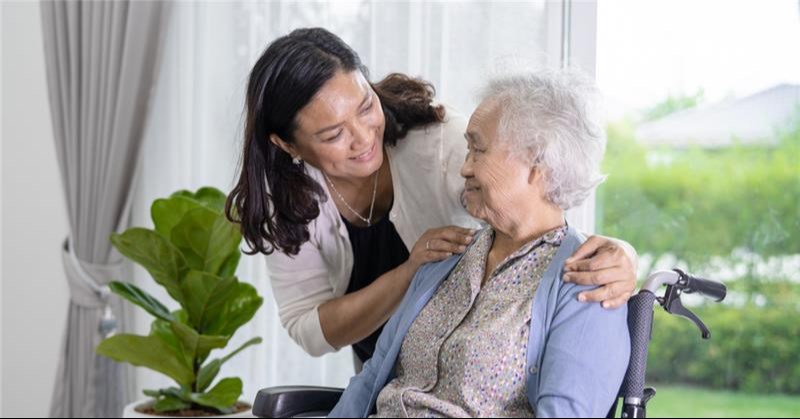In Arizona alone, more than 850,000 individuals shoulder the responsibilities of caregiving – yet very few people are prepared for this chapter of life.
National Caregivers Day, observed on Feb. 16, is dedicated to honoring these selfless individuals who provide personal, physical and emotional support to those in need. This day also serves to highlight the importance of caregivers attending to their own well-being, emphasizing that caring for themselves is essential to effectively care for others.
Caregiving can affect a person’s mental and emotional health, which ultimately can have a negative impact on their physical health. It’s a big job, and in most cases, it evolves over time, depending on the needs of the person receiving care. It’s quite common for the scope and scale of these demands to eventually overshadow a caregiver’s own needs.
Over time, caregivers face increased risks due to the impact of stress. In addition to depression and anxiety, caregivers may develop weaker immune systems. They may experience short-term memory loss or have trouble staying focused, and they are at elevated risk for conditions such as heart disease, cancer, diabetes and arthritis.
As a caregiver, taking care of yourself isn’t just about protecting your own health; it’s about making sure you’re able to care for your loved one, too.
If you are in a caregiving role or have a friend or loved one who is a caregiver, be aware of the importance of striking a healthy balance and relying on resources that can help lighten the load.
Protect your emotional health
Being a caregiver stirs many feelings. You may feel guilty, angry, sad, helpless or overworked, sometimes all at once. It’s natural for a caregiver to experience stress and other emotional or mental health problems. The stigma commonly associated with mental health conditions is more likely to be self-directed, with the caregiver experiencing guilt for their negative feelings.
Talking over your feelings with a close friend, clergy person or counselor may help. Or you can talk with other people going through the same thing in a caregiver support group.
Manage your physical health
Getting enough sleep every night is essential. Try to work in naps or breaks during the day. Exercise improves your mood, helps relieve stress and helps you sleep better at night. A well-balanced diet will help you avoid illness and stay energized.
Prioritize your well-being
Take a break every day. Even if it's only for 15 or 20 minutes, do something for yourself each day. Finding a healthy, quick release, is better than letting stress build up to a level you can't control.
Although it may seem like it takes all your time and energy, don't let caregiving be your entire life. Visit with friends and talk about your other interests. See a movie, listen to some music or read a book.
Find resources
The Arizona Department of Economic Security, Arizona Department of Health Services, Area Agencies on Aging and Arizona Caregiver Coalition are collaborating with other organizations to streamline resources for caregivers, including respite support.
Support a caregiver
Caregivers often find it difficult to ask for help or experience feelings of guilt about stepping away from their caregiving responsibilities. Respite care provides caregivers with much-needed breaks to manage their own affairs. If respite care isn’t practical, you may be able to help in other ways, such as running errands, preparing meals or helping take care of the caregiver’s own household. Even a simple call or text to check in can help a caregiver remain connected to their own lives.
As a friend or loved one of a caregiver, you can also offer support by being their sounding board and making sure they know you are a stigma-free zone where they can express stress, frustration and emotions without judgment.
Learn more about reducing the stigma surrounding mental health and find more advice for caregivers at azblue.com.
Dr. Aaron Bowen is director of Clinical Network Analytics and Outcomes at Blue Cross Blue Shield of Arizona.



